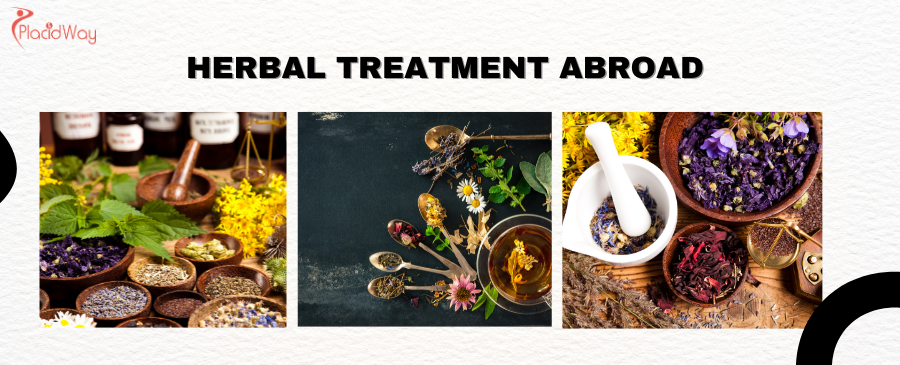Herbal Treatment

Table of Content
Key Insights at a Glance
- The use of herbal treatments is increasing globally due to their natural origin and fewer side effects.
- Herbal treatments can be significantly cheaper abroad, especially in countries known for their traditional medicine practices.
- Risks associated with herbal treatments include potential interactions with conventional medicines and variability in product quality.
- Many countries offer specialized centers for herbal treatments, adhering to international standards to ensure patient safety.
- Patients considering herbal treatment abroad should allocate time for consultation and potentially extended treatment periods.
What is Herbal Treatment?
Herbal treatment, also known as phytotherapy, involves using plants or plant extracts to treat various health conditions. This form of treatment is rooted in traditional medicine practices that have been used for thousands of years across different cultures. Herbal treatments aim to utilize the natural therapeutic properties of plants to address physical, emotional, and psychological health issues.
Symptoms that Herbal Treatment Can Address Abroad
- Chronic pain and inflammation
- Digestive disorders
- Stress and anxiety
- Hormonal imbalances
- Immune system boosting
Latest Types of Herbal Treatment available in the World
| Type of Herbal Treatment | Description | Origin |
|---|---|---|
| Ayurveda | Uses specific herbs and dietary practices to balance body energies. | India |
| Traditional Chinese Medicine | Involves herbal remedies combined with acupuncture and Qi Gong. | China |
| Western Herbalism | Employs a range of herbs native to Europe and North America for treatment. | Western Countries |
Safety Concerns of Herbal Treatment Overseas
- Variability in herbal product quality and concentration
- Possible interactions with prescription medications
- Lack of regulation in some countries
- Need for proper diagnosis by qualified practitioners
Risks Associated with Herbal Treatment Globally
- Allergic reactions to unfamiliar herbs
- Overdosage leading to toxicity
- Unsupervised use causing adverse effects
- Counterfeit or contaminated herbal products
Procedure for Undergoing Herbal Treatment
Patients typically undergo an initial consultation where a qualified herbalist assesses their health condition and medical history. Following this, a personalized treatment plan is developed, which may include various forms of herbal administration such as teas, capsules, extracts, or topical applications. Regular follow-ups are necessary to monitor progress and adjust the treatment plan as needed.
Cost of Herbal Treatment in the World | Compare Prices
| Country | Estimated Cost |
|---|---|
| Mexico | $100 - $300 |
| Turkey | $80 - $250 |
| Thailand | $120 - $350 |
| Colombia | $90 - $300 |
| India | $70 - $200 |
| Austria | $150 - $400 |
| USA | $200 - $500 |
| UK | $180 - $450 |
Find Prices for Herbal Treatment Near You
FAQs Related to Herbal Treatment Internationally
What does the Herbal Treatment Cost without insurance?
Herbal treatment costs without insurance can vary significantly based on the type of herbs used and the duration of the treatment. Generally, prices range from $50 to $500 per session, depending on the country and the complexity of the treatment plan.
Book Your Herbal Treatment Consultation Today
Embark on your journey to natural healing with expert herbalists at PlacidWay. Explore a variety of herbal treatment options available globally, tailored to meet your specific health needs. Book your consultation today and take the first step towards a healthier, more balanced life.
For different packages for Herbal Treatment, click here.





